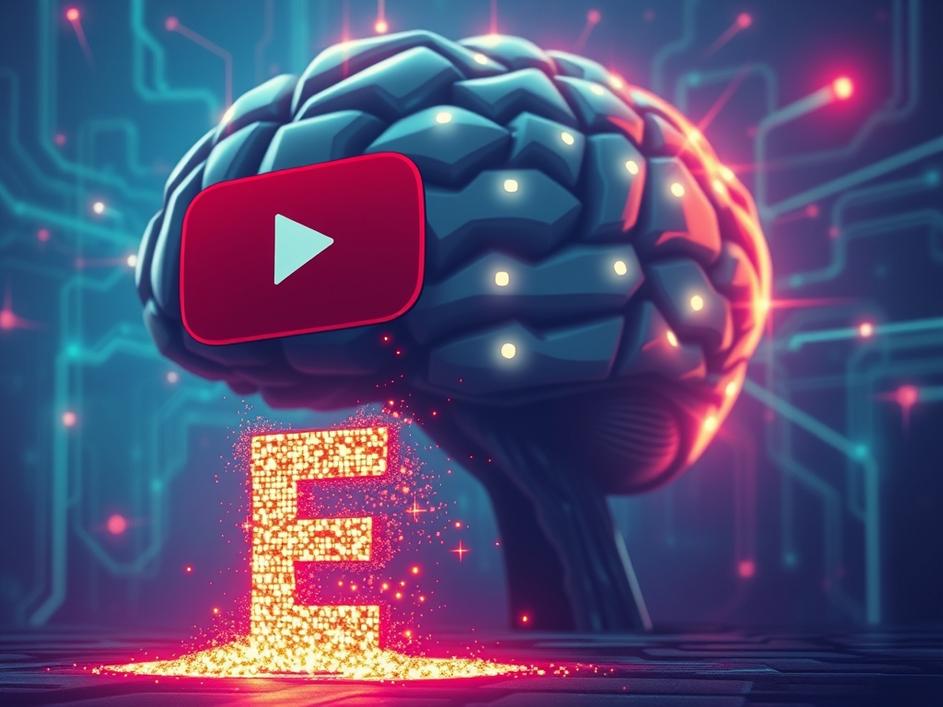


We are a digital agency helping businesses develop immersive, engaging, and user-focused web, app, and software solutions.
2310 Mira Vista Ave
Montrose, CA 91020
2500+ reviews based on client feedback

What's Included?
ToggleImagine spending almost a decade building something you love. You pour your energy into it, learn new skills, connect with hundreds of thousands of people who care about your work. You create a community, a space for shared interests and excitement. Then, one day, it\’s just gone. Poof. Deleted. That\’s the chilling reality for many online creators, and it\’s a story that recently hit home for “Enderman,” a popular YouTuber whose channel, with over 350,000 subscribers, suddenly disappeared. What makes this story particularly unsettling is the whisper — or rather, the shout — that artificial intelligence played a starring role in its demise. It\’s a stark reminder that as our digital lives become more entwined with machines, the decisions made by algorithms can have very real, very human consequences.
Enderman\’s journey started way back in 2016. For years, the channel was a go-to spot for tech enthusiasts, for people who loved seeing new experiments and creative projects come to life. Think about the dedication that takes: countless hours filming, editing, researching, engaging with comments, planning the next big video. It wasn\’t just a hobby; for many creators at that level, it\’s a livelihood, a passion, and a huge part of their identity. To have all that erased in an instant, likely without much, if any, direct human oversight, is heartbreaking. It\’s not just about losing videos; it\’s about losing a community, a history, and years of hard work. The abruptness of it all leaves a bitter taste, especially when the reason isn\’t clearly communicated or feels just plain wrong.
So, what exactly is AI\’s role in all this? Big platforms like YouTube deal with an unimaginable amount of content uploaded every single second. It\’s physically impossible for humans alone to review every video, every comment, and enforce all the rules. So, they lean heavily on artificial intelligence. AI is great at spotting patterns, at quickly identifying things that might violate terms of service, like hate speech or graphic content. It\’s efficient, and it works tirelessly. But here\’s the catch: AI doesn\’t understand nuance. It doesn\’t get context, sarcasm, or an artist\’s intent. It doesn\’t know the difference between a controlled science experiment and a dangerous activity, or between satirical humor and genuine offense. It follows a strict set of rules, and sometimes, those rules are applied too broadly, too quickly, and without the human touch needed to really “get it.”
This is where the problem really starts. A channel like Enderman\’s, focused on tech and experiments, likely pushed boundaries in creative ways. Maybe a video about building a cool gadget or doing a complex demonstration triggered an automated flag for “dangerous acts” or “misinformation,” even if it was totally safe and educational. AI sees keywords, patterns, and visual cues, but it often misses the deeper meaning. It doesn\’t consider a creator\’s past record, their engagement with their community, or the educational value of their content. For an algorithm, a violation is a violation, and the punishment can be swift and severe. This lack of understanding can feel incredibly unfair, like being judged by a robot that doesn\’t speak your language.
The Enderman situation shines a harsh light on the delicate power balance in the creator economy. YouTubers, streamers, and other content creators are effectively building their businesses on rented land. They rely on these platforms for their audience, their income, and their reach. But they also operate at the mercy of the platform\’s rules and, increasingly, its automated systems. When a channel is deleted without clear justification or a straightforward appeal process, it\’s a terrifying prospect for anyone making a living online. It shows how vulnerable creators are when their entire digital existence can be wiped out by a line of code, leaving them with little recourse and a devastating loss of their livelihood and community. It makes you wonder who truly owns the content and the connections we make online.
So, what\’s the answer? It\’s not about getting rid of AI altogether. We need AI to help manage the sheer volume of content. But we also desperately need more human oversight, especially when it comes to decisions that can crush someone\’s career and passion. There should be robust, transparent appeal processes where real people review cases with context and empathy. Platforms need to acknowledge that AI, while powerful, is not infallible. Creators deserve a fair hearing and clear communication, not just an automated email saying “your channel has been removed.” We have to push for a future where technology serves us, not dictates our creative freedoms and livelihoods. This means finding a better balance between the efficiency of machines and the irreplaceable judgment of humans.
The story of Enderman\’s channel deletion is more than just another tech news item. It\’s a powerful wake-up call for everyone involved in the digital space – creators, viewers, and platform owners alike. It reminds us that our online worlds, as vibrant and limitless as they seem, are governed by unseen forces, some of them purely algorithmic. We need to demand more transparency, more fairness, and more humanity from the systems that shape our digital lives. Because if a channel built over nine years with hundreds of thousands of loyal followers can vanish in an instant due to an AI\’s cold calculation, then no one\’s creative space is truly safe. The future of online creativity depends on us finding a way to make sure that the machines we build truly understand the human spirit they are meant to serve.



Comments are closed